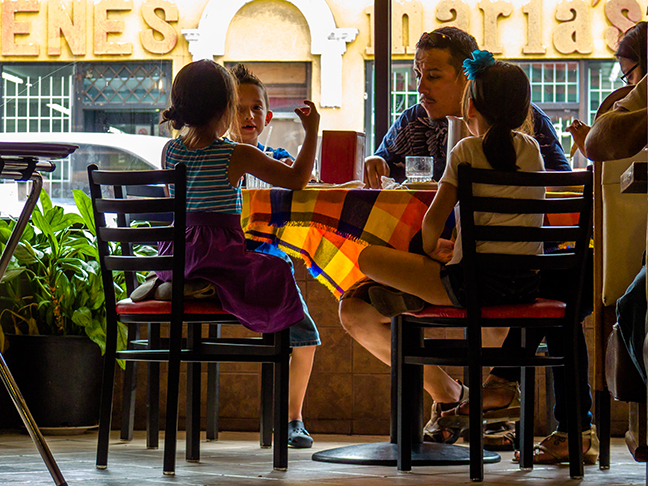
Talk amongst religious conservatives this week has centered on two decisions handed down by the U.S. Supreme Court Wednesday regarding gay marriage. From their point of view, the issues are interesting. They ask two questions. One, are we to have an adult-centered society or a child-centered society? And two, do the rules of men ever trump the rules of God? The second question is the most curious, because it begs the question: can we even have a society if we do not have rules by which we all agree to live? The answer to that question, most would agree, and by all evidence, is no. And that would seem to hold across all cultures and throughout all history, from groups as small as two to groups as large as hundreds of millions. Order and predictability is how we organize and coordinate our behavior. Without coordinated behavior there is no society. So, the question remains, who should be granted power to establish the rules by which we are to organize and coordinate our various behaviors? The government, elected or not? Or, should the source be local, say by community or clan or family? Or, should the source be religious texts as interpreted by those who have spent their lives studying such texts? Or, perhaps rules should be improvised as needed by those needing them and unceremoniously discarded as they lose usefulness? For those who believe there can be and should be no other source for the rules by which society should be run than "the word of God", there is only one answer to the above question, no matter how confused or inappropriately interpreted and applied the logic of religious scholars may be. But, for the more practically minded, it's easy to see there might be any number of good and useful sources for rules by which we might run our social interactions. And, in fact, judging by the vast hodgepodge of rules we do and don't follow, that would very much seem to be the case across most of the globe. We take our cues from our employers, our governments, our friends, our entertainments like music, movies, and literature, and we even make them up as we go along at times. The vast majority of us are not so rigid in our thinking or so dependent on authoritative others for judgement that we cannot function as viable flexible adaptive thinking members of society. And that's a good thing. If it were not the case, social interaction would grind to a halt like some big traffic tie-up waiting for the "Oh, Omnipotent One" to send each of us an individually tailored message telling us exactly what we should do next. A more absurdly inefficient way to run a society there could not be. And yet, that's exactly what religious conservatives, from the Christian Right to the Taliban, and many top-down managed employers, seem to want of all the rest of us. By contrast, the whole notion of democracy places faith in the good sense, good will, and creativity given all of us by our creator to negotiate with each other to arrive at common goals and rules for getting where we think we'd like to go. And by most comparisons, history has quite plainly shone that democratic societal systems far outperform on a vast array of measures systems that are rigidly top-down managed, whether by religious decree or dictatorial fiat. Now, as to whether or not the family is dead because society seems to be edging toward adult-centered, as opposed to child-centered, hasn't it always been the case? I mean, children have always been at the edge of adult-centered activity, given what tasks they might do to contribute, taught by any adult in the vicinity, related or not. It is only recently that children in some societies have been given a special niche separate from much of adult activity, a space in which to grow and learn and play. We've called that niche formal education or schooling. The family, on the other hand, successful or not, has become a kind of nexus between the sheltered world of school and the unforgiving rigors of the adult world. School learning is largely theoretical. The adult world is largely practical. A well functioning family can help the child find a practical fit for themselves within our adult world that makes good use of their school acquired education. A poorly functioning family can make finding a societal good fit seem nearly impossible. Hence, the rise in prevalence of street gangs that attempt to take over where so many poorly functioning families leave off. So, does allowing gay marriage increase or decrease the number of potentially well functioning families for children to be raised in? Judging by how well educated and responsible most gays who want the stability of a committed relationship are, and how willing many of them are to parent their own or adopted children, I'd say there is an excellent chance the number of well functioning families within our societies will significantly increase. In other words, the family is not dead, nor is it about to die because of recent rulings allowing gay marriage. |
• Posted: Jun 30, 2013 11:41:51
• Comments Welcome
• Vote CoolPhotoblogs
• Purchase a Print
• Share
Saturday, July 21st, 2012 Chicago IL USA |